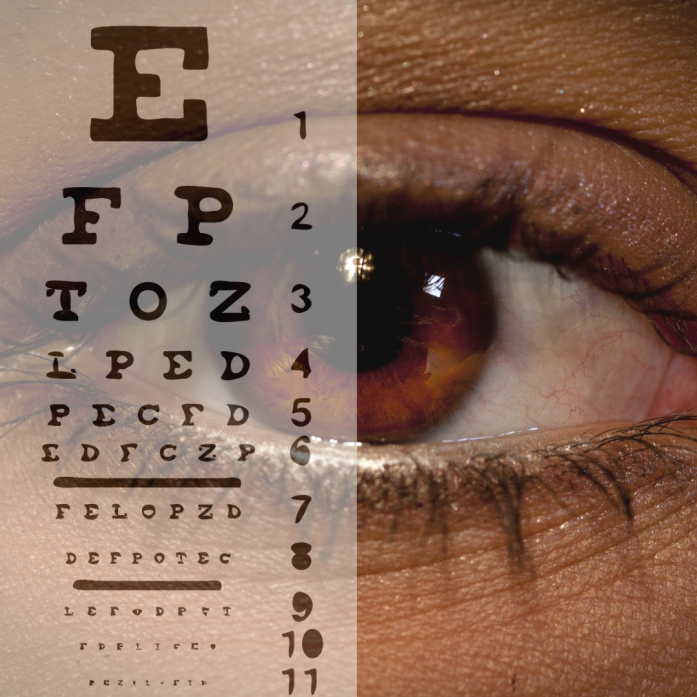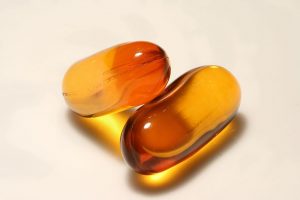Our big list of vision supplements will show you which nutrients help preserve eye health as we age.
After all, our eyes are precious. Most of us want to do whatever we can to preserve our vision as we age. However, while we all want healthy eyes, many of us don’t take proper care of them. Specifically, we don’t supply them with the proper nutrients to maintain sharpness as we age.
That’s where vision supplements come in. These supplements support eye health and enhancement by supplying nutrients we tend to lack. And, in turn, they can help us continue seeing sharply well into our elder years.
 The following list of vision supplements includes vitamins and minerals that support eye health and vision enhancement. Most of these ingredients are also antioxidants, which protect the cells from oxidative stress.
The following list of vision supplements includes vitamins and minerals that support eye health and vision enhancement. Most of these ingredients are also antioxidants, which protect the cells from oxidative stress.
By the end of this list, you’ll know exactly what you need in a supplement for vision maintenance. Read on for the details.
And if you’re interested in specific brands, products and prices, check out our guide on the best visions supplements of 2018. However, if you’re still skeptical about vision supplements, you may want to review our vision supplement pros and cons.
Table of Contents
Astaxanthin
Astaxanthin is a naturally-occurring antioxidant that supports eye health. It is a lipid-soluble compound with anti-inflammatory properties. In addition, astaxanthin supports blood circulation in the eyes while protecting them from harmful UV rays and vision problems.
It is generally difficult to obtain enough astaxanthin for eye health from food, so regular supplementation is justifiable. Clinical trials suggest 6-12 mg of astaxanthin supplementation is recommended for eye health.
Beta-Carotene – Highly Recommended

Carrot is the most popular source of beta carotene By domdomegg [CC BY 4.0], via Wikimedia Commons
But do you know what makes beta-carotene so special for eye health? Well, here are the benefits:
- Enhances night vision
- Acts as an antioxidant
- Helps prevent certain eye problems such as cataract, macular degeneration and blindness
- Converts into vitamin A (Retinol) upon ingestion
Beta-carotene comes from natural and synthetic sources. However, synthetic beta-carotene supplements are still in the early stages of research and development. Overall, beta-carotene is easy to obtain and can be very beneficial for eye function.
Bilberry
A bilberry is quite similar to a blueberry. However, bilberries are a darker blue and come from Europe. As a vision supplement, bilberries provide nutrients that accumulate in the eyes.
These nutrients support eye health and night vision by improving blood circulation in the retina and supplying rhodopsin. Rhodopsin helps the eyes adjust to changing light conditions.
In addition, bilberries are good antioxidants. Overall they have great health benefits for the eyes and the entire body. Thus, billberry supplementation can help with eye maintenance as we age.
Black Currant – Highly Recommended

Black currant fruits By Paolo Neo, via Wikimedia Commons
Black currant is a superfood famous for its potent antioxidant properties. It is also known to contain phytochemicals, which are helpful for our eyes.
Early stages of research suggest black currant can benefit our eyes in the following ways:
- Improves night vision
- Helps prevent certain eye problems
- Enhances visual processing and prevents learning disorders
- Protects the eyes from asthenopia
All in all, black currant is an ideal vision supplement for gamers and people who use computers or smartphones often. In this digital age with increasing cases of asthenopia, black currant can help the eyes cope with fatigue and changing light conditions. Not to mention, this vision supplement is good for all ages.
Citicoline – Highly Recommended
Citicoline is a naturally occurring compound and nootropic that helps maintain eye and brain health. For example, it supports cell membranes and improves cell-to-cell communication.
Here’s how citicoline can help as a vision supplement and natural nootropic:
- Provides neuroprotection
- Improves retinal signaling by modulating neurotransmitter dopamine release
- Enhances cell membrane health
- Helps prevent glaucoma and amblyopia caused by neurodegeneration
Since visual processing happens in the brain, brain health is important while taking vision supplements. As you can see, citicoline is helpful for cognition and vision. Plus, it has no known adverse effects, making it extremely safe.
Fish Oil

Fish oil soft gel capsules By Marco Almbauer [CC BY-SA 4.0], via Wikimedia Commons
Omega-3 fatty acids are difficult to obtain from the diet alone, so regular supplementation is often necessary. Here are the known benefits of fish oil for our eyes:
- Supports retinal regeneration
- Prevents dry eyes or alleviates dry eye syndrome
- Improves blood circulation in the retina
- Enhances eye adaptability in changing light conditions
- Helps prevent or delay age-related macular degeneration
Nowadays, omega-3 fatty acid deficiency is a common problem. Not only does it affect the eyes, but it influences other vital organs.
For example, a deficiency can cause fatigue, poor memory, poor eyesight, dry skin, heart problems, mood swings and poor blood circulation. Fortunately, however, fish oil supplementation can help us prevent omega-3 fatty acid deficiencies and improve overall eye health.
Ginkgo biloba – Highly Recommended
Ginkgo biloba is a vision supplement and nootropic brain supplement for wholesome eye and brain health. It’s been a popular herb in traditional Chinese medicine for ages. Not to mention, its health benefits have been proven in numerous animal tests and clinical trials.
In general, Ginkgo biloba is a known herbal remedy for conditions including asthma, fatigue, tinnitus and poor circulation. However, recent research suggests ginkgo biloba may work as a vision supplement as well. Here are the potential benefits of ginkgo biloba for our eyes:
- Anti-inflammatory properties
- Promotes blood circulation in the eyes
- Antioxidant properties help prevent cell deterioration leading to cataracts and blurred vision
- Possible treatment for certain eye problems such as age-related macular degeneration, glaucoma, cataract and diabetic retinopathy
Overall, gingko biloba is a potent antioxidant that may benefit the eyes, other organs and the brain. It is arguably the most researched herbal remedy for various health concerns.
However, research on gingko biloba for eye health is still rather limited. Regardless, the safety of this supplement has been well established, so regular intake shouldn’t cause any issues.
Lutein
Lutein is a popular vision supplement known to enhance vision and delay or prevent age-related macular degeneration. It may also help prevent the development of cataracts.
Basically, lutein is a potent antioxidant, helping to ward off eye problems that tend to arise later in life. As a vision supplement, lutein is often combined with zeaxanthin, which has similar health benefits.
This combination promotes faster absorption upon intake. In addition, lutein can enhance overall vision during the day and night. Not to mention, it can help prevent future eye problems.
Saffron (Crocus sativus) – Highly Recommended

Saffron threads used as spice or medicine By Hubertl [CC BY-SA 4.0], via Wikimedia Commons
This valuable spice has various health benefits to offer. As a vision supplement, saffron is known to:
- Protect the eyes from harmful UV rays
- Promote healthy blood flow in the eyes
- Provide antioxidants for the eyes
- Help prevent macular degeneration
- Counteract neurodegeneration
- Contain anti-tumor properties
The benefits of saffron are primarily due to the high carotenoid content within it. And while it might be expensive, saffron truly helps enhance vision and overall eye health.
Vitamin A
Vitamin A is one of the most popular vitamins for vision. It can be found in either retinol or carotenoid forms, which come from animal or plant-based sources.
However, vitamin A supplementation remains controversial because it is an abundant nutrient in common foods. Thus, we may already have enough of it. Regardless, here are the known benefits of vitamin A as a vision supplement:
- Enhances adaptation to changing light conditions
- Promotes eye regeneration from injury or medical procedures
- Helps prevent cataracts and other common eye conditions
Not everyone gets enough vitamin A from food, which can eventually lead to a vitamin A deficiency. For example, those following hypocaloric diets may not get enough vitamin A daily. All in all, vitamin A is an essential vitamin for the eyes and the entire body.
Vitamin C
Vitamin C is an essential vitamin for the growth and repair of tissues throughout the body, including the eyes. It also plays a huge role in our immunity from certain pathogens.
However, we can’t store vitamin C in the body for long periods of time. So, we must get it from either regular food intake or regular supplementation. Here are the benefits of vitamin C on ocular (eye) health:
- Antioxidant properties
- Prevention or delay of macular degeneration
- Decreases the risk of having cataracts
In general, vitamin C is a water-soluble vitamin that is easily flushed out by the body. Thus, we don’t have to worry about getting too much of it.
However, because of its popularity and known health benefits, people have started taking mega doses of vitamin C with the hopes of improving overall health. Unfortunately, this is an outdated theory with no research behind it. Taking mega doses of vitamin C is not beneficial for the body in any way.
Actually, the daily recommended dose of vitamin C for optimum health is less than 1000 mg. Consuming more than that is futile, seeing as the body stops absorbing it after around 1,000 mg. Overall, vitamin C is important for eye function and overall health. However, taking too much of it doesn’t make sense.
Vitamin E
Vitamin E is a popular antioxidant for its age-defying and immunity-enhancing effects. But did you know it’s good for your vision, too?
It’s true, vitamin E can help delay or prevent age-related macular degeneration and cataracts with its antioxidant properties. Specifically, it’s known to reduce cataract risk in women.
Overall, vitamin E is a solid vision supplement and antioxidant that can help us maintain vision and health as we age. People often take it in supplement form because most natural sources of vitamin E contain very small amounts per serving.

Euphrasia officinalis By Natalie-S [CC BY-SA 4.0], via Wikimedia Commons
Eyebright (Euphrasia officinalis)
Eyebright was the first known treatment for eye disorders in 14th century Europe. More recently, however, medical research has confirmed its therapeutic effects: anti-inflammatory, antioxidant, anti-fungal, antimicrobial, antiviral and hypotensive effects.
Nowadays, eyebright is still used as a treatment for eye conditions such as conjunctivitis. Overall, it is an effective vision supplement for the prevention of eye irritation, fatigue and inflammation.
Zeaxanthin
Zeaxanthin is another type of carotenoid, very similar to lutein. In dietary supplements, zeaxanthin and lutein often come together. Zeaxanthin settles in the eyes and supports clear, healthy vision.
Here are the known benefits of zeaxanthin for our eyes:
- Prevents eye damage caused by UV rays
- Has antioxidant properties
- Counteracts age-related macular degeneration and cataracts
- Enhances low light eye performance
All in all, zeaxanthin is an effective vision supplement that works well with lutein. If you don’t get enough leafy greens like kale, spinach and parsley in your diet (which contain zeaxanthin), zeaxanthin supplementation may help you prevent health and vision issues as you age.
Zinc
Zinc is an essential mineral for the eyes and the entire human body. For one, it helps with the absorption of essential vitamins like vitamin A.
In addition, zinc is often found deep within our eyes’ retina. It’s known to help prevent night blindness and may work better when taken with antioxidants.
All in all, zinc is an ideal vision supplement for aging men and women, especially since our levels tend to decline as we age. Keep in mind, however, that we need just about 200 mg of zinc per day to maintain proper health.
Leave a Reply